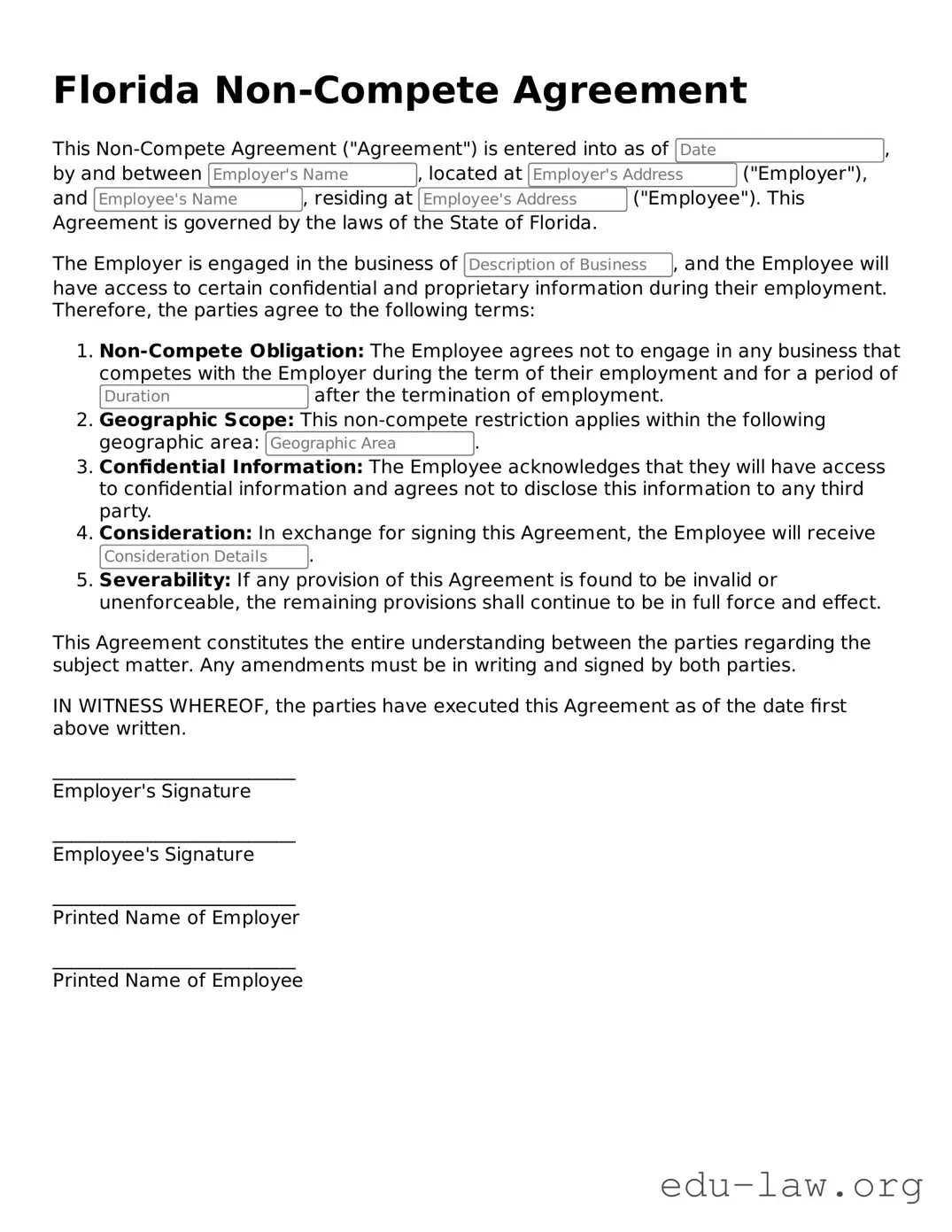Legal Non-compete Agreement Template for Florida
A Florida Non-compete Agreement is a legal document that prevents individuals from working for competitors or starting a similar business within a certain timeframe and geographic area. Such agreements aim to protect legitimate business interests and restrict competition. Understanding the details of this form is essential for both employers and employees navigating the complexities of non-compete clauses.
